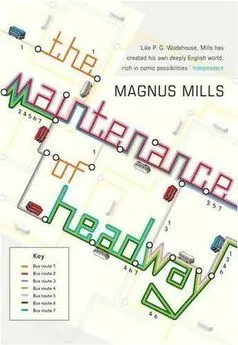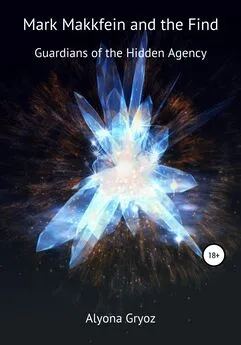Mark Mills - Amagansett
- Название:Amagansett
- Автор:
- Жанр:
- Издательство:неизвестно
- Год:неизвестен
- ISBN:нет данных
- Рейтинг:
- Избранное:Добавить в избранное
-
Отзывы:
-
Ваша оценка:
Mark Mills - Amagansett краткое содержание
Amagansett - читать онлайн бесплатно ознакомительный отрывок
Интервал:
Закладка:
The first section dealt with the external examination. In describing the general appearance of the corpse, Hobbs began by stating that rigor mortis was well established, suggesting a time of death somewhere between six and twenty-four hours previously. Starting at the head and working his way down the body, he noted small conjunctival hemorrhages in the eyes (green, as Hollis had guessed). These were evidence of asphyxiation, though not necessarily by water. The pinkish foam exuding from the mouth and nostrils, however, was strongly indicative of drowning, and led Hobbs to opine that the victim had been alive at the time of submersion.
The report then turned to the abrasions over the prominent parts of the face and the anterior trunk. Apparently this was concomitant with drownings off the ocean beach. Hollis read on, intrigued. He knew that when a person drowned they soon sank to the bottom where they remained until putrefaction filled their belly with gases that refloated them. He wasn’t aware that the submerged corpse always lay suspended in the same position—face down with the head lower than the rest of the body. The abrasions were the result of Lillian Wallace’s face and upper torso scraping along the sandy sea-bed as the currents carried her to and fro. The downward angle of the body also accounted for the faint and blotchy lividity in the head, neck and anterior trunk.
The hands were next. The skin of the fingerpads and palms was blanched and wrinkled, what Hobbs called ‘washer-woman hands’, a direct consequence of prolonged immersion. The fact that this maceration had not progressed to the backs of the fingers and the backs of the hands led him to narrow his estimate of time of death to between twelve and seventeen hours prior to the body’s recovery from the ocean.
The passage of the report that dealt with the internal examination was far more technical, and Hollis was obliged to read it several times over.
Core body temperature lent weight to Hobbs’ revised time of death estimate. The blue-purple discoloration of the bone of the mastoid air cells was typical of drowning, though not proof of it. However, a close examination of the stomach and the lungs placed the matter beyond question. There was seawater in the stomach, with associated blanching of the gastric mucosa. The lungs were described as bulky and ballooned, and as having a marbled appearance to the pleural surface, with blue-gray areas interspersed with pink and yellowish zones of more aerated tissue—typical of ‘emphysema aquosum’. When sectioned, seawater flowed from the lungs.
These appearances pointed to active inspiration of air and water and could not be produced by the passive flooding of the lungs post mortem. This was further confirmed by the existence of hemorrhagic subpleural bullae, resulting from tears in the alveolar walls, which also accounted for the blood-tingeing of the foam in the airways, nose and mouth.
There were further tests on the blood, bile and vitreous humor. These revealed low levels of alcohol, certainly not enough to have played a contributory part in her death.
In conclusion, wrote Hobbs, the pathological evidence established beyond any doubt that the decedent was alive when she entered the sea, and that she drowned in it some time between 5 p.m. and 10 p.m. the day before her body was found.
Hollis laid the document on the desk. He had misjudged Hobbs. The report was as impressive as any he had read—authoritative and thorough, circumspect in its judgments until the forensic evidence proved indisputable. What had he expected, some slapdash affair by a second-rate provincial medical examiner? Dr Hobbs’ jurisdiction covered miles of coastline noted for its treacherous waters. Drownings were commonplace, and he surely had more experience of them than the vast majority of pathologists. A little dejected, Hollis abandoned the idea of running the information by Paul Kenilworth, a former colleague back in New York.
A movement outside caught Hollis’ eye. A brougham was pulling into the parking lot. Not seen as often since the war, it was the sort of vehicle that made a discreet yet unequivocal statement about the owner’s wealth and standing. The uniformed chauffeur in the open driver’s compartment guided the car to a halt. Getting out, he opened the rear door, offering his hand as he did so.
For a brief instant, it occurred to Hollis that the whole thing had been a terrible mistake, that Lillian Wallace hadn’t drowned off the ocean beach. For there she stood, tall and slender, squinting against the sunlight.
It was a few moments before Hollis realized he was looking at Lillian’s older sister, Gayle. Physically, there was little to distinguish between the two women. Gayle’s hair was maybe a little longer and neatly coiffed so that it curled like two breaking waves around her neck and beneath the ears, but the oval face, the wide-set eyes and the mouth were the same. What differences there were lay not so much in the physiognomy as the presentation—in particular the clothes.
Hollis had seen nothing in Lillian’s wardrobe that came close to the elegance of the outfit Gayle was wearing. Her skirt was cut long and full in the new French style, her blouse was fashionably free of padded shoulders and tailored to accentuate her narrow waist.
A gentleman who could only have been George Wallace was next out of the car. Of medium build, he was dressed in a dark gray summer suit, white shirt and blue necktie. For a man who must have been into his sixties he was remarkably well preserved, displaying very little extra weight around the midriff, and a full head of silver hair, parted at the side. He stood tall and straight, exuding the easy patrician air of a long-standing member of the privileged class.
The same could not be said of his son, who was the last to exit the vehicle. The poor fellow was clearly upset and doing his best to conceal the fact, but the set of his brow and the stoop of his shoulders betrayed him. What was his name again? Hollis turned to his memo pad. Manfred.
Looking back through the window, he saw George Wallace direct a few words to his son, who then visibly pulled himself together, smoothing his sandy hair. Manfred smiled weakly at something his sister said, then she took his arm and they started making their way towards the building.
Hollis arrived in the lobby as they were entering through the main door. ‘Mr Wallace? Deputy Chief Hollis. We spoke on the phone yesterday.’
George Wallace accepted the hand with a cold, firm grip. ‘My daughter, Gayle. My son, Manfred.’ There was something soothing about the depth and resonance of his voice.
‘I’m sorry we had to meet under these circumstances,’ said Hollis. He felt insincere uttering the line he had used on many such occasions in the past. ‘The Medical Examiner will be with us shortly. Please, take a seat.’
They glanced disapprovingly at the diminutive waiting area, where a lean, shabby young man was sucking dejectedly on a cigarette. It struck Hollis that this must be one of the few instances in their lives where they had little choice but to do as others did, sit where others sat. Ordinarily, they lived sheltered from the world, moving between their houses, clubs and offices cocooned in chauffeured limousines, supported wherever they went by a loyal staff who shopped, cooked, cleaned, laundered and generally shielded them from the less appealing realities that most accepted as an elemental part of life. Maybe he was doing them a disservice, but somehow he couldn’t see any of them waiting in line at a grocery store for a pack of cigarettes or haggling with a taxi driver over the fare.
Here at the County Morgue, however, there were no private boxes, no members-only enclosures, no first-class Pullman compartments. It was a low, ugly, antiseptic building where all and sundry were obliged to mingle. Death, the Great Leveler.
Gayle picked nervously at the out-of-date magazines on the low table. Manfred removed a pack of cigarettes from his pocket, offering one to his sister, who declined. Unexpectedly, he then held the pack towards the young man who had just put out his own cigarette.
‘Don’t mind if I do,’ said the man. From his eyes it was clear he had been crying. Manfred lit the fellow’s cigarette, and then his own, with a gold lighter.
‘Who’d you lose?’ asked the young man.
‘My sister.’
‘Mother,’ said the young man. And that was the end of the conversation, to the evident relief of George Wallace, who observed with a cool, dispassionate eye. Hollis looked at the young man, considering the likelihood that the woman with the swollen liver had been his mother.
‘How does this…work?’ asked Manfred.
Hollis turned. ‘One of you will need to identify her.’
‘We would all like to see her,’ said George Wallace, though Gayle’s expression suggested otherwise.
‘You’ll then need to sign the body-release form, and that’s it.’
‘That’s it?’ Manfred said.
‘The funeral directors can then take her away. I imagine they’ll be coming up from the city…’
‘She wanted to be buried here,’ said Gayle.
‘We don’t know that,’ interjected George Wallace.
‘Father, we’ve already had this conversation.’
‘She loved East Hampton.’ Manfred’s words were directed at Hollis, but intended for his father’s ears. George Wallace had evidently conceded defeat on the matter, but had wished to flag his disapproval one final time.
‘Can you recommend a local funeral home?’ Wallace elder asked.
‘I’m afraid I’m not allowed to do that. There are several in town.’
‘Livingstone’s is best,’ interrupted the young man. ‘Buried my Nan, Grandpa, and my old man, good and deep, no frills, don’t need ‘em, not where they gone.’
‘Thank you,’ said Manfred.
‘Ain’t no skin off my nose.’
Hollis suspected that, thanks to the young man, Livingstone & Sons now stood little chance of attracting George Wallace’s custom.
At that moment, the receptionist manning the front desk approached. ‘Mr Hamel, like I said, it’s going to be several hours before we’re ready for you. There’s really no point in you waiting around.’ The young man looked at her long and hard. If he suspected he was being moved on for the benefit of the others, he gave no indication of the fact.
‘So long,’ he said, getting to his feet and leaving. The receptionist waited for the door to swing shut behind him.
‘I’m sorry about that,’ she said. ‘Can I get you something to drink?’
Hollis had been wrong. Even here in the morgue, the Wallaces and their kind received preferential treatment.
‘No thank you,’ said George Wallace.
‘A glass of water, please,’ said Manfred.
‘Yes, water, thank you,’ said Gayle quietly.
The receptionist left without even glancing at Hollis.
He placed a brown-paper parcel on the table. ‘These are Lillian’s, her bathrobe and towel, from the beach. I went down there when I was at the house yesterday.’
Following in her final footsteps, he had wandered past the swimming pool, out of the back gate in the garden, down the bluff and across the sandhills. He hadn’t expected to find anything, but a short search revealed the bathrobe and towel folded beside a clump of beach grass on the frontal dune. They were clearly visible from the beach, and it was evidence of the class of bather frequenting that stretch of shoreline that in almost twenty-four hours no one had taken them.
He had approached the spot carefully, but the soft, windblown sand had absorbed any tracks there might have been. Back at headquarters, a closer examination of the articles had revealed nothing out of the ordinary, just a hair band and a brush in the pocket of the terry-cloth bathrobe.
Читать дальшеИнтервал:
Закладка:









